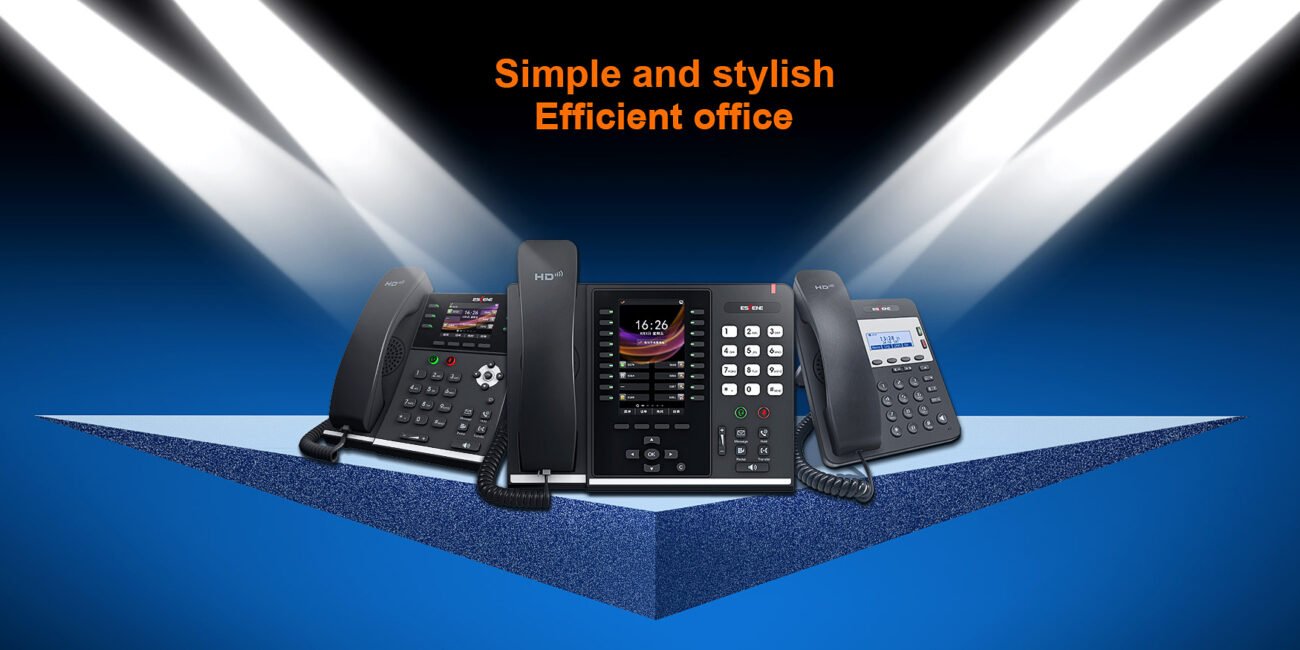IP Phone
Need help?
+91 828 712 4987

IP Phone
An IP phone is a type of telephone that uses Internet Protocol (IP) to send and receive voice communications over a network. Unlike traditional phones that use analog or digital telephone lines, IP phones connect to a network via Ethernet or Wi-Fi and use Voice over IP (VoIP) technology. Here’s an overview of IP phones and their key features:
Key Features of IP Phones
VoIP Technology: IP phones convert analog voice signals into digital packets that are transmitted over IP networks. This allows voice calls to be carried over the same network used for data and internet.
Connectivity: They connect to the network using an Ethernet cable or Wi-Fi, and can be integrated with an organization's existing data network.
Advanced Features: Many IP phones come with features like call forwarding, voicemail, call transfer, conference calling, and caller ID. They may also support video calls and integration with other business applications.
User Interface: They often have a display screen, programmable keys, and a user-friendly interface that makes it easier to manage calls and access features.
Integration: IP phones can integrate with various communication systems such as IPPBX, CRM software, and other business tools, enhancing their functionality and providing a more cohesive communication experience.
Benefits of IP Phones
Cost Savings: Using IP phones and VoIP technology can reduce the cost of long-distance and international calls compared to traditional telephone systems.
Scalability: Adding new phones to the system is often easier and more cost-effective since it typically involves just connecting to the network rather than installing new phone lines.
Flexibility: IP phones can be used from any location with network access, allowing for remote work and flexible office setups.
Enhanced Features: They often provide advanced features that may not be available with traditional phones, such as integration with video conferencing and other collaborative tools.
Types of IP Phones
Desk Phones: Traditional-looking phones designed for use on a desk or workstation, often with a display screen and various programmable buttons.
Softphones: Software applications that run on computers or mobile devices, providing similar functionality to physical IP phones.
Cordless IP Phones: Similar to traditional cordless phones but use IP technology to connect to the network wirelessly.
Conference Phones: Specialized IP phones designed for conference rooms, with multiple microphones and speakers to capture and broadcast sound across a room.
How It Works
Initialization: The IP phone connects to the network and communicates with a VoIP server or PBX system to register and configure itself.
Making Calls: When a call is made, the IP phone converts the voice into digital packets, which are sent over the IP network to the recipient's phone.
Receiving Calls: Incoming calls are directed to the IP phone through the network, which then converts the digital packets back into audio.
Integration: The phone can interact with other systems, such as email or CRM platforms, depending on its features and integrations.
IP phones represent a modern approach to telecommunications, leveraging the internet to provide cost-effective, flexible, and feature-rich communication solutions.
